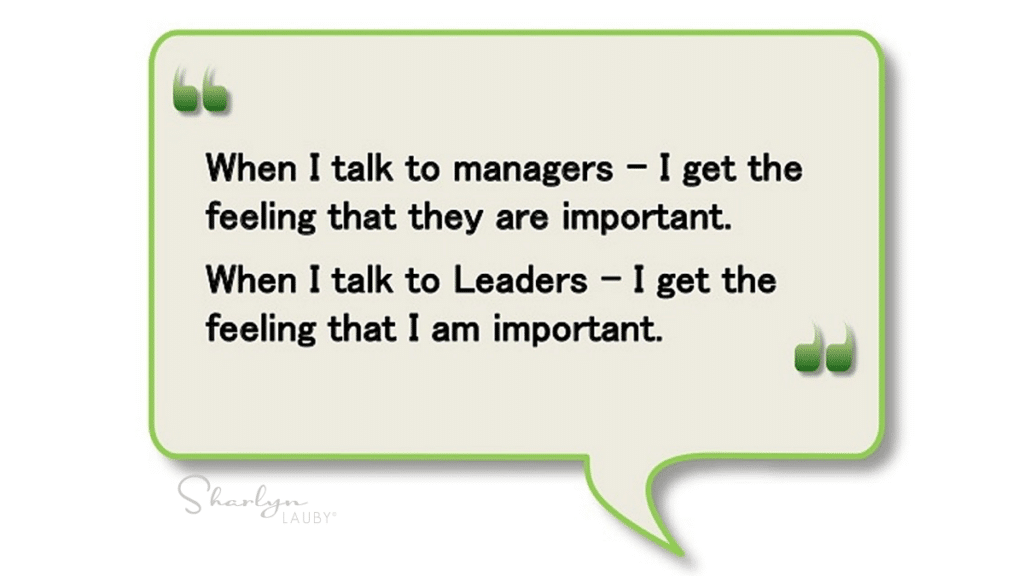Leadership and Management Are Not Interchangeable Terms
Estimated reading time: 4 minutes
Please forgive me for a bit of a rant today, but I feel compelled to write about leadership, management, and the fact that they’re different.
Management is a discipline that has five functions: planning, organizing, staffing, directing, and controlling.
Leadership is the ability of an individual to influence.
Using these definitions, everyone can be a leader. Let me say that again, everyone can be a leader. We want managers to be leaders. But not all leaders will have the job title of manager. That’s okay. Because management and leadership are not interchangeable terms. And we don’t want them to be.
More importantly, management is not secondary to leadership. And that’s the reason I wanted to write something about leadership and management. I see people using the word leader like it’s superior to the word manager. You’ve probably seen it too, but here are a couple of examples:
“For the last couple weeks, I’ve been refocusing with leaders on whether we should stay at our level, or we should play down a level (essentially doing our managers’ roles).”
“This is a leader’s toughest discipline…letting go and trusting your team.”
The perception I get from these comments is that leaders are better than managers. Leaders are above managers. And that if you’re an employee, then you have no influence on the organization. Which I hope is not true.
I love a good motivational quote as much as the next person but creating platitudes about leadership can be very harmful to individuals and organizations if they’re not presented in the right context. In essence, these quotes make it sound like only people with high level job titles are leaders. And everyone else is … well, they’re not. It can also keep organizations from developing employees with leadership skills because they’re not what is considered a leader in the organization.
It’s just like the quote in today’s image. I’m sure the person’s intent was to say that when I’m having a conversation with others, I want to feel important. There’s absolutely nothing wrong with that. We all want to feel that way. But that’s not a function of management or leadership. That’s about being a thoughtful human being and practicing empathetic listening.
Organizations need managers. The functions of management are important to business operations. We need people who can effectively and efficiently plan the work, organize the work, staff the operation, direct the work, and control resources.
Managers should be able to lead. The reason we often combine management and leadership in the same sentence is because to be a good manager, you need to be able to influence others. Managers should be able to influence the planning of work, the allocation of resources, and the direction of work.
Managers shouldn’t be the only leaders in the organization. We regularly talk about the value of employee feedback. Ideally, employee feedback should be able to influence the organization. That’s called leadership. Employees can influence the way things get done.
Employees who can influence are candidates for management opportunities. Organizations often look at employee interactions to determine if they’re ready for positions of greater responsibility. Employees who show they’re able to influence the organization could be great candidates for a supervisory skills or management development program.
Again, I think we need to be careful about using management and leadership as interchangeable terms. It could become difficult to explain performance. For example, if the organization doesn’t differentiate between leadership and management, how do you tell a manager that they’re doing a great job as a leader (but not as a manager)? Or vice versa – how do you explain to someone who does an excellent job of influencing that they’re not ready for management?
As a HR pro, saying that you’re working with the senior management team does not imply that you’re in some sort of unimportant role. We don’t need to say we’re working with the “leadership team” to be important. As HR professionals, we do need to be able to explain what leadership and management are and coach people on how to achieve their leadership and management goals.
63